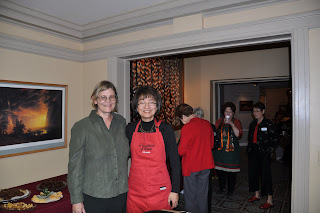
Sugar is the common name for sucrose, also called saccharose. Sugar has its origin in plants such as sugarcanes and sugar beets. In its natural form, sugarcane provides a rich source of vitamins and minerals.
Sugar is most often prepared as a fine/refined, white, granulated, odorless powder. Large sugar crystals, called rock sugar crystal, are formed by allowing a supersaturated solution of sugar to settle for several days. Both brown sugar and molasses come from late stages of sugar refining. The later into the process, the stronger the color and taste will be. Between the true raw sugar found in unheated sugarcane juice and refined sugar are specialty “raw” sugars that are part sugar and part molasses poured into molds to dry which results in brown sugar cakes or sugar slices called bing pin tohng or simply pin tohng in Cantonese. This specialty sugar is preferred in Chinese cuisine for braising and stews.
Refined sugar is devoid of nutrients. Over consumption of refined sugar can cause tooth decay, contributing to obesity and adversely affect people with diabetes, damaging eyes, kidneys, nerves, heart and blood vessels. If is also know to cause hyperactivity in some children. Research shows that refined sugar may also cause growth-hormone deficiency and deplete the body of potassium and magnesium.
In view of the possible health hazards, it is best to read all food labels to find out about the sugar content of each food item, including candy bars, chips, ice cream, soft drinks, fruit juice, jam, peanut butter, yogurt, and breads, because sugar and high–fructose corn syrup are generously used by food manufacturers in food products. A World Health Organization (WHO) Technical Report, “Nutrition and the Prevention of Chronic Diseases,” recommended against the consumption of all monosaccharides and disaccharides added to foods. Instead, WHO approves only of natural sugars, the unrefined sugar found in fruit, grains, vegetables, pure honey, and maple syrup, for unrestricted consumption.
(Adapted from pp.111-112 of A Tradition of Soup by Teresa Chen)










